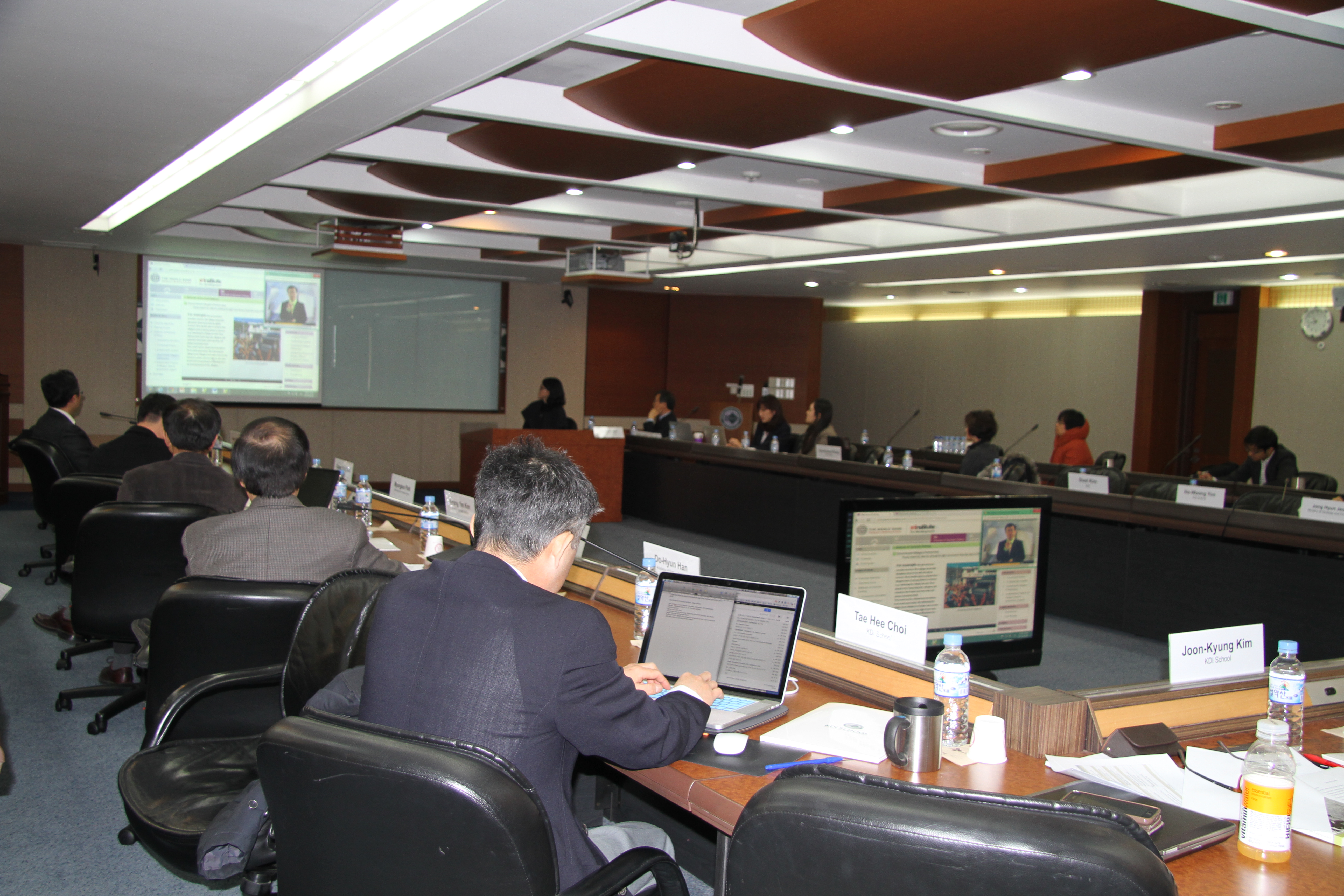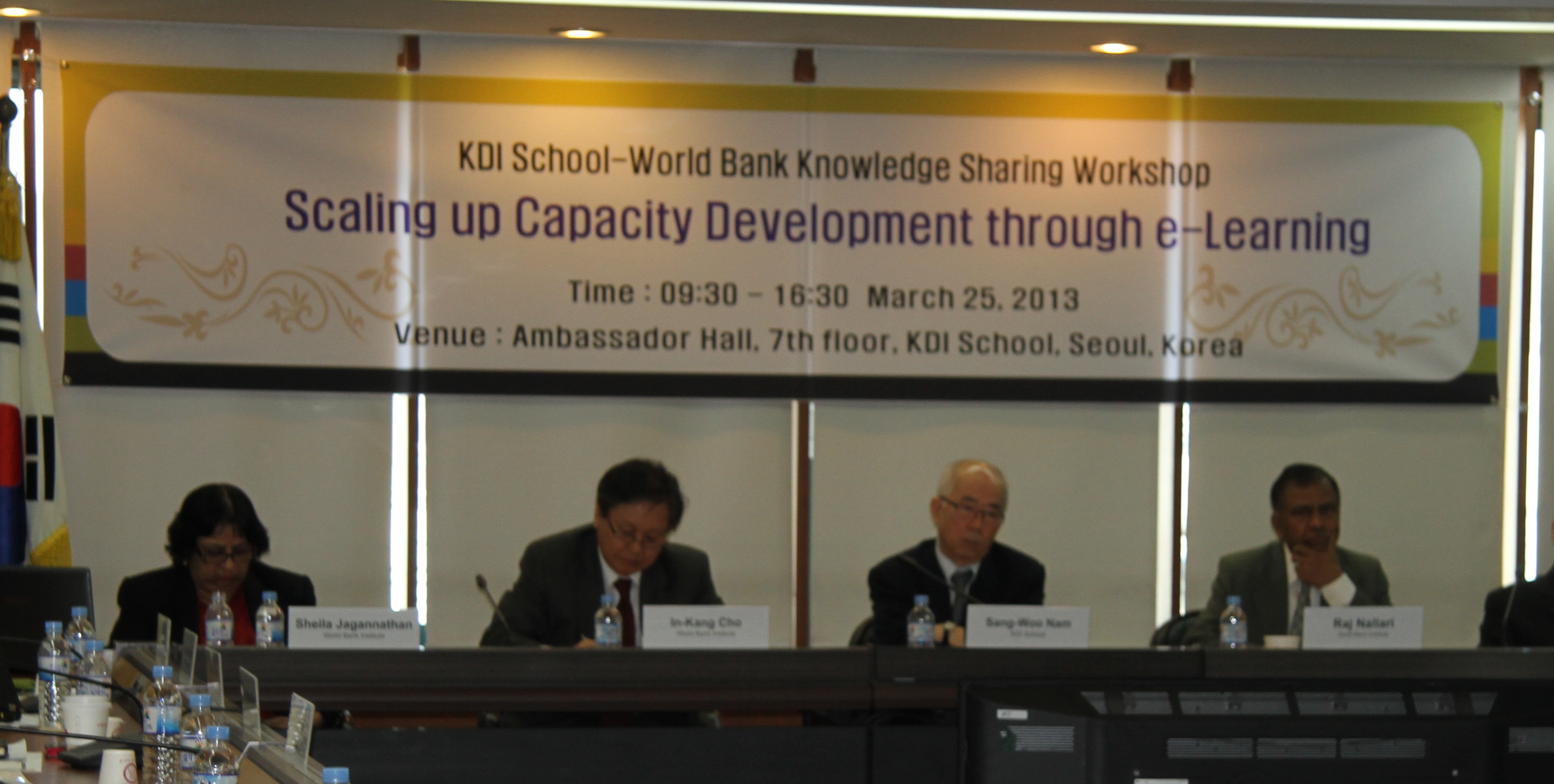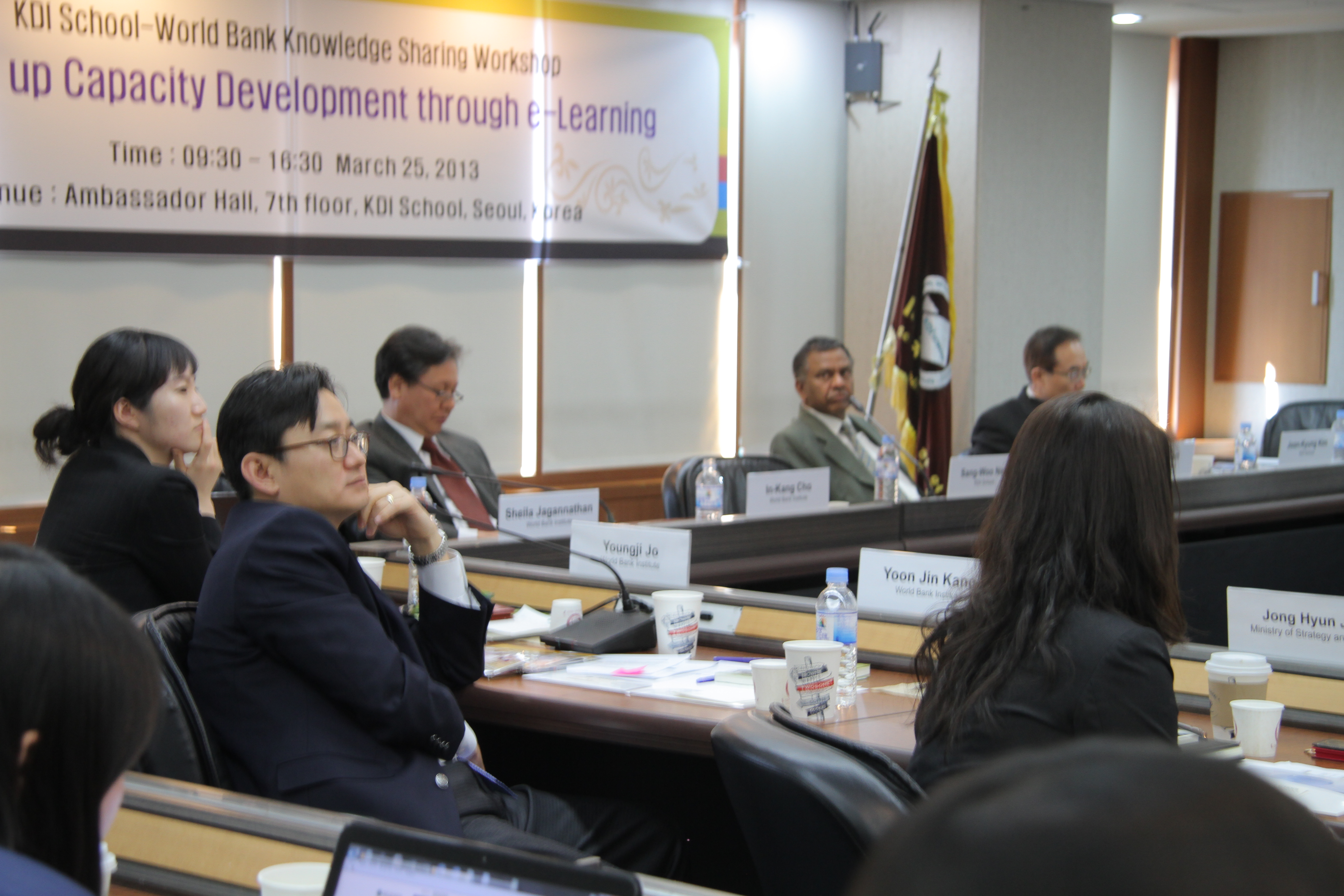
KDIS-WBI knowledge sharing workshop
- Date 2013-05-01 01:31
- CategoryResearch and Education
- Hit1618

E-Learning is a hot topic these days and understandably so. It promises to deliver education at an unprecedented scale and speed. When MIT, the world renowned tech university first opened its e-learning course it received over 300,000 applications. It was a clear sign that the future of learning will be driven by on-demand education available to learners anywhere anytime.
Entrepreneurs have spotted the opportunity too. Take the case of Khan Academy, a non-profit educational platform founded in 2008 has already delivered over 240 million lessons through its library of 4,000 videos in subjects ranging from math to art history. This is no small achievement for an organization funded entirely by donations and run by a staff of less than 40 people.
Over the past decade, the Korean Government and the World Bank Institute (WBI) have had a dynamic partnership across wide ranging development topics including public private partnerships, inclusive growth & innovation policy. The partnership implemented through institutions such as KDIS enhances capacity development by sharing Korea’s development success.
The Knowledge Sharing Workshop held on March 25th 2013 was aimed at helping World Bank Institute & KDIS strengthen their collaboration in the area of e-learning & explore the future development of WBI-KDIS co-branded e-courses. The day long workshop undertook in-depth discussions on the conversion & integration of 5 successful Korean case studies into relevant e-learning modules. The day began with Prof Joon-Kyung Kim’s presentation outlining the KDIS’ e-learning development plan & strategy in 2013. At the heart of the KDIS strategy lies the conversion of the ‘100 Case Study Project’ into e-learning modules with KSP modularization approach as the basis. Prof Kim stressed that unless these modules are of the highest quality it would be a challenge to attract practitioners to undertake such courses.
This was followed by a pilot of the e-module on Saemaul Undong presented by Prof Do-Hyun Han from the Academy of Korean Studies. This was KDIS’ first attempt at creating an interactive e-module complete with animated voiceovers & mini video lectures based on the WBI compatible Moodle e-learning platform. Given the limited time & technical experience, it was a commendable first shot. The WBI team was extremely impressed with the pilot. Raj Nallari, Practice Manager, WBI and Sheila Jagannathan, Program Manager, e-Institute for Development, WBI gave valuable suggestions and feedback on how to further improve the format, delivery & presentation of the module.
The second session before lunch featured presentations by Prof Kyung Joon Lee, SNU & Prof Chang Yong Choi, KDIS on Reforestation & E-Government respectively. Post lunch session started with a brief tour of the GDLN Center and was followed by case studies on ‘Vocational Training System for a Skilled Workforce’ and ‘Volume based Waste Fee System in Korea’.
Each of these sessions was followed by an extensive feedback discussion to help the authors to effectively translate the case studies into e-learning modules. The representatives of Jaewoo Media, the company tasked with the production of e-modules were also present throughout the workshop to ensure that all the technical aspects were covered.
The Workshop concluded with a presentation by Sheila Jagannathan from the WBI team on how the web is transforming education and what does the WBI e-Institute offer development practitioners. Her fifteen minute talk was a very lucid articulation of the state of e-learning in the world touching upon Massive Open Online Courses (MOOC), pedagogical & design issues in e-courses and lessons from WBI’s international experience.
We hope that very soon budding practitioners from around the world will be able to utilize these e-learning modules and contribute to their country’s development.
The future of the KDIS-WBI partnership looks very bright indeed.


By Manish Joshi (2012 MPP, India)
Related News
-
Story1 day ago
Fostering Unity and Understanding: Ramadan Initiatives at KDI School#KDISCHOOL #KDIS #student #story #muslim #ramadan #diversity
-
Story5 days ago
I felt like the snow was there to welcome us: Manju Kumari Jaisi (2023 MPP) -
Research and Education9 days ago
Republic of Korea Economic Bulletin, May 2024#KDI #Economic #KDISCHOOL #kdischool #Economic Bulletin #Research
